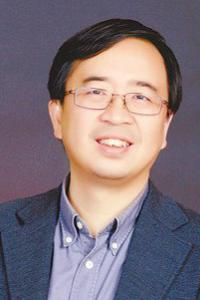Prof. Jian-Wei Pan, born in Mar, 1970, is a full professor of physics at the University of Science and Technology of China. He obtained his Ph.D. degree in 1999 from the University of Vienna. In 2011, he was elected as the academician of Chinese Academy of Sciences (CAS). In 2011, he was appointed as the chief scientist of the quantum science experiments satellite. In 2012, he was elected as TWAS Fellow. In 2014, he was appointed as the director of the CAS Center for Excellence in Quantum Information and Quantum Physics.
The research of Prof. Jian-Wei Pan focuses on quantum information and quantum foundations. As one of pioneers in experimental quantum information science, he has accomplished a series of profound achievements, which has brought him worldwide fame. Due to his numerous progresses on quantum communication and multi-photon entanglement manipulation, quantum information science has become one of the most rapidly developing fields of physical science in China in recent years. His work in the field of quantum information and quantum communication has been recognized by Nature as “features of the year 2012” and “the science events that shaped the year 2016 and 2017”, by Science as “Breakthrough of the Year 1998”, by the American Physical Society websites as “The top physics stories of the year” (six times), and by the Physics World, Institute of Physics as “Highlights of the year” (six times). Within China, his work has been selected for eleven times as “The Top Ten Annual Scientific and Technological Progresses in China”.
Related Publications
- Bayesian learning for optimal control of quantum many-body states in optical lattices. Physical Review A 106, 13316 (2022).
- Benchmarking 50-Photon Gaussian Boson Sampling on the Sunway TaihuLight. IEEE Transactions on Parallel and Distributed Systems 33, 1357-1372 (2022).
- Closing the Locality and Detection Loopholes in Multiparticle Entanglement Self-Testing. Physical Review Letters 128, 250401 (2022).
- Creation of an ultracold gas of triatomic molecules from an atom–diatomic molecule mixture. Science 378, 2-5 (2022).
- Deterministic measurement of a Rydberg superatom qubit via cavity-enhanced single-photon emission. Optica 9, 853 (2022).
- Experimental demonstration of free-space two-photon interference. Optics Express 30, 11684 (2022).
- Experimental demonstration of genuine tripartite nonlocality under strict locality conditions. Physical Review Letters 1-10 (2022). at
- Floquet prethermal phase protected by U(1) symmetry on a superconducting quantum processor. Physical Review A 105, 1-13 (2022).
- Micius quantum experiments in space. Reviews of Modern Physics 94, (2022).
- Observation of Thermalization and Information Scrambling in a Superconducting Quantum Processor. Physical Review Letters 128, 1-6 (2022).
